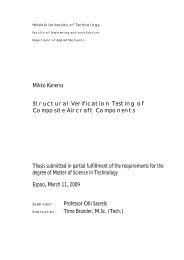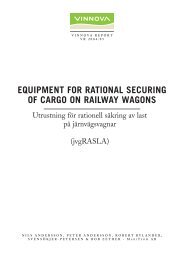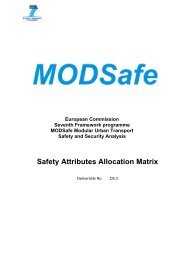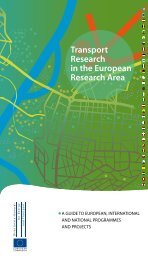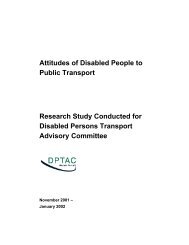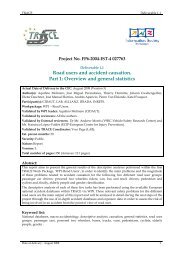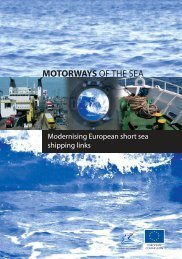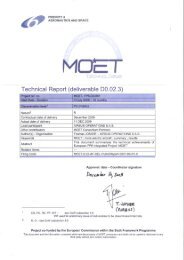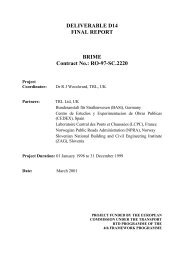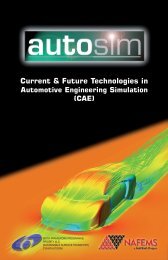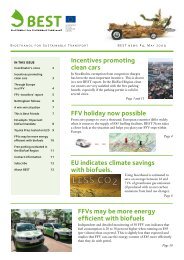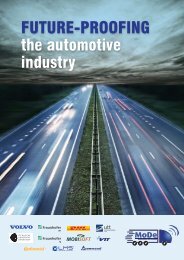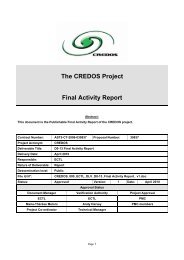WP3: Rail Passenger Transport - TOSCA Project
WP3: Rail Passenger Transport - TOSCA Project
WP3: Rail Passenger Transport - TOSCA Project
Create successful ePaper yourself
Turn your PDF publications into a flip-book with our unique Google optimized e-Paper software.
5.5 Social acceptability<br />
Table 5-6<br />
Social acceptability<br />
Rates from ‒ ‒ “unacceptable adverse effect” to + + “significant benefits”;<br />
0 being “comparable to reference system”.<br />
Values within (parentheses) indicate that counter-measures are expected to be taken in order to<br />
produce a neutral outcome.<br />
Social equity<br />
implications<br />
Generation<br />
within EU<br />
of jobs<br />
<strong>Passenger</strong> safety<br />
Noise<br />
Privacy<br />
Ethical issues<br />
PA Low drag 0 + 0 0 (+) 0 +<br />
PB Low mass 0 + 0 0 (+) 0 +<br />
PC Energy recovery 0 0 0 0 0 ++<br />
PD Space efficient 0 + 0 0 - ++<br />
PE Modular short train 0 0 0 + 0 +<br />
PF Eco-driving 0 0 0 0 0 ++<br />
PG Dual mode 0 + 0 0 (+) 0 +<br />
PH Bio fuels -to + 0 to + 0 0 0 - to +<br />
PI Electrification 0 + 0 0 (+) 0 +<br />
PJ Low-GHG electric power - to 0 0 0 0 0 0 to +<br />
Higher speed 0 0 0 (-) 0 (-) 0 0 (-)<br />
Comments<br />
- Most technologies and measures are neutral or not far from neutral with respect to social<br />
acceptability, at least after that counter-measures have been taken.<br />
- All technologies that contribute to the competitiveness of the European rail industry (in this<br />
case: suppliers of rail vehicles and infrastructure in relation to non-EU suppliers) are<br />
assumed to be positive for job creation or at least job survival.<br />
- Technologies that contribute to reduction of greenhouse gases (GHG) have an inherent<br />
positive ethical value. Regarding bio fuels however this is uncertain, due to possible<br />
conflicts with land use and food production; see WP4 report.<br />
- In a narrow sense higher speed contributes to higher GHG emissions because of higher<br />
energy use, for the same type of train. However, the historical trend is that trains are<br />
adapted to the intended use, so higher speeds will force a faster and more ambitious<br />
development of energy-saving features, in particular low air drag. Moreover, if higher train<br />
speeds contribute to a higher competitiveness of rail operations, and these ‘higher speed’<br />
operations have comparative benefits from a GHG point of view, the ‘Higher speed’ factor<br />
would be even more positive.<br />
Deliverable D4 – <strong>WP3</strong> passenger 31



